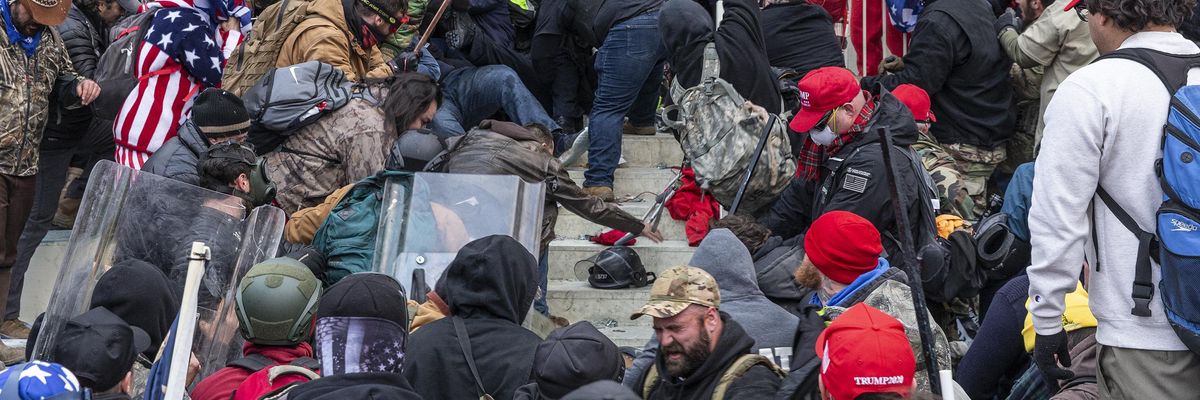Rep. Mark Pocan recognized the significance of the language employed during last week's extraordinary prime-time hearing of the Select Committee to Investigate the January 6th Attack on the United States Capitol. And he embraced it.
"This was not a spontaneous mob attack on the U.S. Capitol," said the Democratic representative from south-central Wisconsin's 2nd District. "It was an explicit attempt to stage a coup and override a free and fair election."
Exactly.
For too long, pundits and political leaders adopted cautious language in describing the deadly Jan. 6, 2021, assault on the Capitol by supporters of Donald Trump. That was a mistake that Jan. 6 Committee chair Bennie Thompson, D-Mississippi, rectified Thursday night.
What happened on and around Jan. 6 was a conspiracy to overturn the results of the 2020 presidential election and to keep Trump in office as an illegitimate pretender to power. "Donald Trump was at the center of that conspiracy," explained Thompson, who then said what every member of Congress should have said on the day that Trump called upon his supporters to "fight like hell" to position him not as an elected president but as an authoritarian strongman who had seized power:
"Any legal jargon you hear about seditious conspiracy, obstruction of an official proceeding, conspiracy to defraud the United States boils down to this: Jan. 6 was the culmination of an attempted coup. A brazen attempt, as one rioter put it shortly after Jan. 6, 'to overthrow the government.' The violence was no accident. It represented Trump's last stand, most desperate chance to halt the transfer of power."
With those words, Thompson brought clarity to a conversation.
What happened on Jan. 6 was always an attempted coup.
Now, finally, the chairman of the congressional committee that has been charged with getting to the bottom of a conspiracy has labeled it as such. This matters because, until the investigators get the language right, America cannot have an honest discussion of what happened on the day that supporters of a man who had lost the 2020 election by 7 million votes stormed the U.S. Capitol in a violent effort to prevent the certification of the Electoral College votes that were to confirm that defeat.
Ruth Ben-Ghiat, the scholar of fascism and authoritarian leaders who teaches history at New York University, immediately recognized the significance of the committee chair's statement. "Kudos to Chairman Thompson for calling it a coup," she said. "Some still call it a riot, which does not capture the larger political design of overturning our democracy."
Trump's defenders mocked the turn of phrase, and the hearings in general. But there was no denying the accuracy of the term that Thompson employed.
PolitiFact, the independent fact-checking operation run by the Poynter Institute, noted Thompson's coup reference and pointed out that the Coup D'etat Project at the University of Illinois' Cline Center for Advanced Social Research, which monitors coups around the world, had determined that the storming of the Capitol "was an attempted coup d'etat: an organized, illegal attempt to intervene in the presidential transition by displacing the power of the Congress to certify the election."
It was a coup attempt. Referring to it as such opens a new chapter in our discussion of the high crimes that Donald Trump and his allies committed on Jan. 6, 2021.

